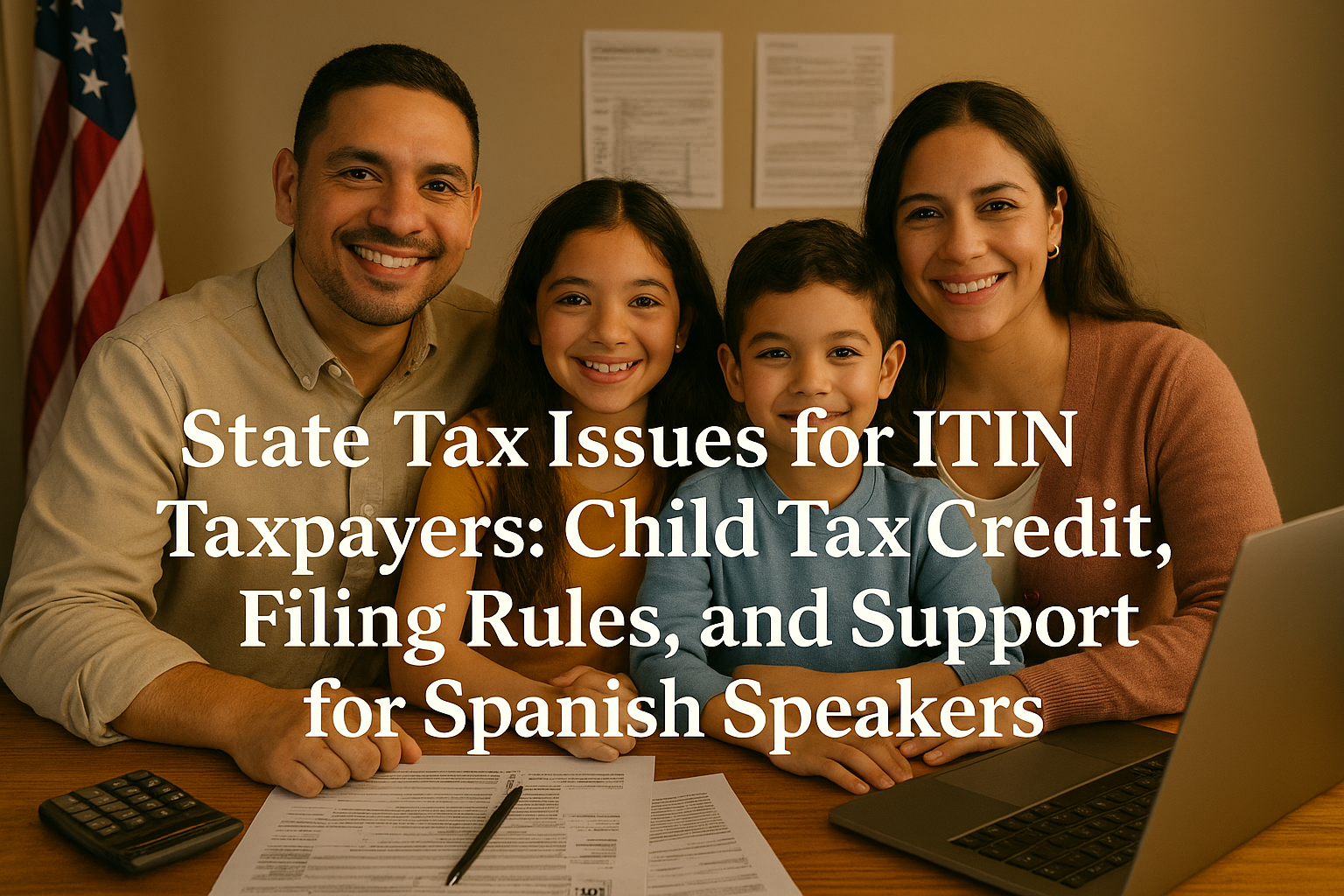



ITIN taxpayers are essential in maintaining fairness within the United States tax system. They file federal tax returns even without eligibility for a Social Security Number. The IRS uses the Individual Taxpayer Identification Number to track compliance accurately. This ensures taxpayers without SSNs can report income and avoid legal or financial risks.
The IRS Individual Taxpayer Identification Number is a nine-digit number starting with the digit nine. Taxpayers use it specifically when filing required tax returns. By using an ITIN, individuals demonstrate compliance with federal law. This process allows them to claim possible credits and remain in good standing.
Ignoring ITIN rules creates serious financial and legal consequences. Expired or invalid ITINs may lead to rejected returns and delayed refunds. The IRS can also impose penalties for failing to maintain compliance. Staying proactive with ITIN renewals protects financial stability and provides long-term peace of mind.
The Internal Revenue Service (IRS) created the Individual Taxpayer Identification Number (ITIN) to ensure compliance with U.S. tax law. ITIN taxpayers must use this tax processing number when they are not eligible for a Social Security Number SSN. Below, we break down what ITINs are, who needs them, and why they matter.
The IRS Individual Taxpayer Identification Number is essential for those who must pay taxes but cannot obtain an SSN. By applying on time, maintaining valid documents, and renewing before the expiration date, ITIN taxpayers ensure compliance and protect their financial benefits.
The Internal Revenue Service IRS recognizes different ITIN scenarios depending on eligibility, immigration status, and federal income tax return type. Below are the most common ITIN taxpayer situations explained clearly.
Each situation requires taxpayers to submit Form W-7 with original supporting documents, such as a passport or driver’s license, to prove identity and foreign status. By understanding the type of ITIN application needed, taxpayers can file a complete tax return, claim eligible benefits like the Child Tax Credit, and avoid unnecessary delays with immigration services or the IRS.
Addressing ITIN issues protects taxpayers from unnecessary financial harm. The IRS imposes penalties and interest when filings are late. A valid Individual Taxpayer Identification Number ensures the Internal Revenue Service accepts your federal tax return without rejection. ITIN taxpayers avoid unnecessary costs and maintain accurate financial records by staying compliant.
Refunds and credits often depend on having an active ITIN number. Taxpayers risk losing the Child Tax Credit without timely renewal. The IRS requires complete forms and original supporting documents to process claims successfully. Filing correctly safeguards your eligibility for refunds, credits, and other financial benefits.
Maintaining an updated taxpayer identification number (ITIN) builds trust with the Internal Revenue Service (IRS). Accurate records demonstrate responsibility and compliance with federal law, benefiting individuals and businesses that must report income and pay taxes. Proper management of ITIN applications strengthens long-term financial stability and credibility.
We designed a clear four-step process to help ITIN taxpayers manage applications, renewals, and federal tax return compliance with confidence.
By following these steps, taxpayers avoid rejected returns, protect refunds, and stay compliant with IRS rules on taxes and identification.
An Individual Taxpayer Identification Number (ITIN) is a nine-digit tax processing number issued by the Internal Revenue Service IRS. It is designed for individuals who must file a federal income tax return but are not eligible for a Social Security Number SSN. ITIN taxpayers use this number to report income, pay taxes, and, in certain cases, claim benefits such as the Child Tax Credit. The ITIN ensures compliance with U.S. tax laws while supporting accurate IRS records.
ITIN taxpayers include nonresident aliens earning U.S. income, undocumented immigrants, and dependents or spouses who cannot obtain a Social Security Number SSN. International students receiving taxable scholarships or grants may also require an ITIN. Foreign investors who must report income in the United States also qualify. Essentially, anyone needing to file a federal tax return but not meeting SSN eligibility may apply for an ITIN through the Internal Revenue Service IRS.
An ITIN remains valid unless it is not used on a federal tax return for three consecutive years, at which point it expires. Additionally, the IRS sometimes sets expiration dates for specific ITIN number ranges, requiring renewal even if recently used. Expired ITINs must be renewed before filing to avoid processing delays, rejected returns, or lost refunds. Keeping your ITIN current ensures compliance with Internal Revenue Service IRS requirements and preserves eligibility for credits or refunds.
To apply for an ITIN, taxpayers must submit Form W-7 with original supporting documents or certified copies. Accepted documents include a passport, national identification card, or driver’s license to prove identity and foreign status. Immigration services records may also support eligibility. The Internal Revenue Service (IRS) requires documentation showing identity and foreign status before issuing an ITIN number. Incomplete or incorrect documentation often delays processing or leads to application rejection.
Individuals and businesses may need an ITIN depending on their circumstances. Individuals apply for an ITIN to file federal income tax returns, claim refunds, or meet reporting requirements when they cannot obtain an SSN. Businesses and foreign investors may use ITINs to report income or pay taxes on U.S.-sourced earnings. The IRS issues ITIN numbers to ensure compliance with tax laws for taxpayers ineligible for a Social Security Number SSN.
Protecting your finances requires timely attention to ITIN applications and renewals. ITIN taxpayers must consistently maintain compliance with IRS requirements. Get Tax Relief Now offers personalized assistance with Form W-7 and all ITIN-related filings. Their expert guidance ensures your federal tax return is filed correctly and completely.
A free, confidential case review helps identify risks and solutions for your situation. Experienced professionals handle supporting documents and renewal deadlines carefully. Acting early prevents penalties, rejected filings, and lost refunds. We request your free case review today to secure peace of mind.
Methods of Contact
Vital for collaboration, support, or information exchange.